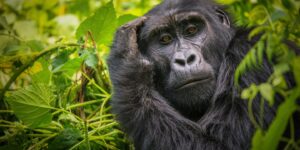The cost of an African safari varies widely based on several factors like accommodation, transportation modes, activities, the number of days and people on a safari. Embarking on an African safari is often regarded as a once-in-a-lifetime adventure, offering an unparalleled opportunity to witness the continent’s breathtaking landscapes and diverse wildlife. However, the dream of experiencing the wild beauty of Africa comes with a price tag that varies widely based on several factors. Understanding these cost determinants can help potential travelers plan and budget for their African safari experience.
Basic/ Budget Safaris.
They are popularly known as Budget Safaris. For those with limited financial resources, these safaris offer an accessible way to experience Africa’s wilderness at a marginal cost. They usually range from 100 to 300 people perday; these safaris offer basic accommodations and shared experiences. Countries like Uganda, Tanzania, Kenya, and South Africa are popular destinations for budget travelers. Accommodations may include basic lodges, budget-tented camps, or camping under the stars. While the amenities are minimal, these safaris still include essential elements such as game drives, park fees, and meals, ensuring that travelers can enjoy the core safari experience at standard prices.
Mid-Range Safaris:
Mid-range safaris offer a balance between cost and comfort, with prices ranging from $350 to $600 per person per day. Destinations such as Tanzania, Kenya, South Africa, Botswana, and Namibia offer a variety of mid-range options. Travelers enjoy stays in comfortable lodges and tented camps. These lodges provide a higher level of service and amenities compared to budget safaris. These packages often include private or small group game drives, which enhance the wildlife viewing experience. The slightly higher cost also covers park fees, meals, and additional activities such as guided walks or cultural tours.
Luxury Safaris:
For those seeking a more luxurious experience, luxury safaris provide top-tier accommodations and exclusive services from about $600 to $1,000+ per person. Botswana, Rwanda, Tanzania, Kenya, and South Africa are renowned for luxury safari offerings. Accommodations in this category include high-end lodges, exclusive tented camps, and boutique hotels that cater to every need. These safaris often feature private game drives, ensuring personalized attention from experienced guides. The cost of an african safari includes four-course meals, premium beverages, and additional services such as massage and spa treatments and tailored excursions, making it a truly unique experience.
Super-Luxury Safaris: The top-notch of Extravagance
At the highest end of the spectrum, super-luxury safaris cater to the most discerning travelers, with costs starting at $1,000+ and exceeding $2000 per person per day. Destinations such as Botswana, Tanzania, Kenya, South Africa, and Zimbabwe offer these opulent experiences. Accommodations include ultra-luxury lodges and private reserves where exclusivity and privacy are paramount. These packages typically include private guides, custom itineraries, luxury amenities, fine dining, and exclusive activities like helicopter tours. The exceptional level of service and the bespoke nature of these safaris ensure an unforgettable journey.
Additional Costs
These are usually costs beyond the Safari Itself. On top of the daily rates, several other expenses are included in the total cost of an African safari. International flights can range from $800 to $2,000 depending on the point of origin and season. Internal flights within Africa, necessary for reaching remote safari destinations, can cost between $100 to $500 per flight. Travel insurance, covering medical emergencies, trip cancellations, and other unforeseen events, typically ranges from $100 to $500. Tips and gratuities, while optional, are customary in many places and can add $10 to $50 per day to the budget. Visa fees, varying by country, are considered (e.g., $50 for Kenya).
Special Activities Cost.
Some activities are rare, and most times prices are higher compared to regular activities. They include Gorilla trekking in Uganda and Rwanda priced at $800 and $1500 respectively.

Most African safari destinations offer unique experiences. Kenya and Tanzania are famed for the Great Migration, the Maasai Mara, the Serengeti, and the Ngorongoro Crater. South Africa’s Kruger National Park and private game reserves offer more accessible safaris. Botswana’s Okavango Delta is known for high-quality, low-density tourism, providing an intimate wildlife experience. Namibia offers unique landscapes, such as the Etosha National Park and the desert-adapted wildlife. The different costs of the activities in the different regions play a role in determining the cost of an African Safari.
However, to maximize the safari experience while managing costs, it is advisable to book in advance, especially for peak seasons (June to October, December to January). Understanding the seasonal variations can help; the peak season offers better wildlife viewing but at higher prices
